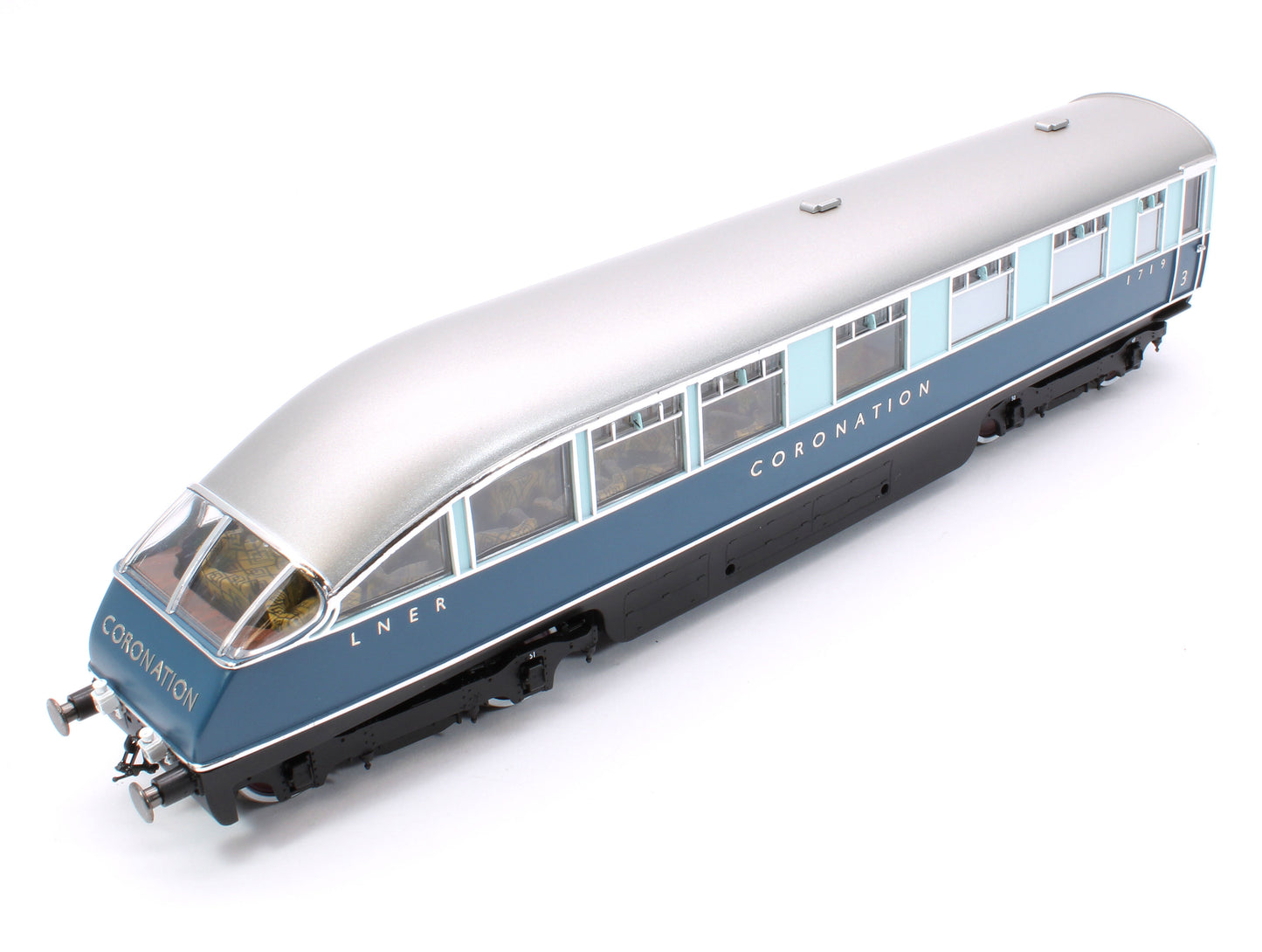Hornby R40227 Coronation Observation Car LNER 1719










Product Details
| SKU | R40227 |
|---|---|
| Vendor | Hornby |
| Categories | Best selling products Carriages & Coaches Era 3 HO-OO Hornby New products OO Gauge Carriages & Coaches OO Gauge Rolling Stock OO Gauge scale Rolling Stock |
| Scale | OO Gauge |
| Share | |
| Features |
|
Product Description
Named to mark the coronation of King George VI, 'The Coronation' was for a time the LNER's flagship express passenger service. The train ran between London and Edinburgh in as little time as 6 hours. The service was formed by a rake of four pairs of specially designed streamlined coaches with the addition of a streamlined observation car other than in the winter when the short period of daylight precluded the views. One service was run in each direction each day, the down service departing London for Edinburgh at 16:00pm, and the up service leaving Edinburgh at 16:30pm. Services were usually pulled by an A4 Class locomotive, commonly liveried to match the rest of the train.
The coaches were based upon the successful Silver Jubilee design and featured extensive attempts to reduce drag and increase comfort including the use of articulated pairs of coaches sharing bogies which limited the gap between the coaches, and aerodynamic underframe skirting.
In total, 4 sets of coaches were built plus the two observation cars. 2 sets were used for 'Coronation' (and 'Talisman'; the return service), 1 set for the West Riding Limited service to Leeds, and 1 spare set which could be used for any of the preceding services. After the war, the services were not resumed, and the sets were split up.
After a fire in 1951, additional doors were added to the twin sets to reduce the time needed to disembark in emergencies. All coaches lost their underframe skirting to aid maintenance and reduce unnecessary weight.
One of the most novel features of the 'Coronation' was the inclusion of a specially built streamlined observation car, often affectionately named the 'beaver tail' observation car. Two were built, with one being used for the up service and the other for the down service. Passengers couldn't reserve a seat in the observation car, instead a fee was charged for the use of the carriage by the hour. In reality the streamlined shape of the roof severely limited the views out the back of the carriage. In 1959, long after the 'Coronation' service had ceased, British Railways rebuilt the observation cars with a new un-streamlined end which featured much larger windows and a new seating arrangement to significantly improve the view with the cars being used on the famously picturesque west highlands line.
Formation (observation car and locomotive both turned and arranged depending upon direction of travel):
Brake Third (A) + Kitchen Third (Twin) (B)
Open First (C) + Open First (Twin) (D)
Open Third (E) + Kitchen Third (Twin) (F)
Open Third (G) + Brake Third (Twin) (H)
- Item Length - 29.1cm, Width - 3.5cm, Height - 5cm
- 1:76 Scale 00 Gauge
- Painted Finish
- Minimum Curve (mm): Radius 2
- Number of Parts: 1









